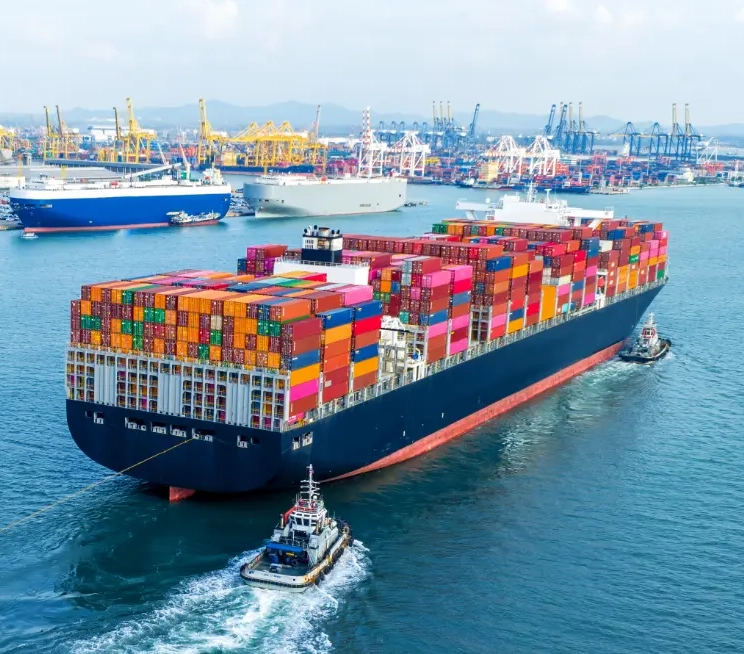In today’s world, businesses face increasing pressure to operate responsibly. One significant aspect of this responsibility is supply chain sustainability. But what does this term mean, and why is it so important for businesses and the planet? Let’s break it down.

Understanding Supply Chain Sustainability
Supply chain sustainability refers to managing and improving the environmental, social, and economic impacts of the supply chain. It’s about ensuring that the processes involved in producing and delivering goods and services are not only efficient but also responsible. This includes everything from sourcing raw materials to manufacturing, transportation, and distribution.
1. Environmental Impact:
This involves reducing the carbon footprint, minimizing waste, and conserving resources. For example, businesses might choose suppliers who use renewable energy or adopt practices that reduce pollution.
2. Social Impact:
This focuses on fair labor practices, ensuring safe working conditions, and respecting human rights. Companies need to be mindful of how their operations affect workers in their supply chain and take steps to ensure fair treatment.
3. Economic Impact:
Sustainable practices can also lead to cost savings and long-term financial stability. By optimizing resources and reducing waste, companies can often lower their operating costs and enhance their profitability.
Why Supply Chain Sustainability Matters?
1. Environmental Protection:
Our planet faces significant environmental challenges, including climate change and resource depletion. Sustainable supply chains help mitigate these issues by reducing the environmental impact of business operations. For instance, companies that invest in green technologies and sustainable materials contribute to lower greenhouse gas emissions and less environmental degradation.
2. Social Responsibility:
Consumers and stakeholders increasingly demand that companies act responsibly. Businesses that prioritize sustainability demonstrate their commitment to ethical practices and human rights. This can improve their reputation and build stronger relationships with customers, employees, and communities.
3. Regulatory Compliance:
Governments around the world are introducing stricter regulations related to environmental and social practices. Companies that adopt sustainable practices are better prepared to comply with these regulations, avoiding potential fines and legal issues.
4. Cost Efficiency:
Sustainable practices often lead to cost savings. For example, reducing energy consumption and minimizing waste can lower operational costs. Companies that adopt energy-efficient technologies or streamline their logistics operations can see significant financial benefits.
5. Market Demand:
Consumers are becoming more conscious of the environmental and social impact of their purchases. Businesses that can demonstrate their commitment to sustainability are likely to attract and retain customers who prioritize ethical and eco-friendly products.
How to Implement Supply Chain Sustainability
Implementing sustainability in the supply chain involves several key steps:
1. Assess Current Practices:
Start by evaluating your current supply chain operations. Identify areas where improvements can be made in terms of environmental impact, social responsibility, and economic efficiency.
2. Set Clear Goals:
Define specific, measurable goals for sustainability. This could include reducing carbon emissions by a certain percentage, improving labor conditions, or cutting down on waste.
3. Engage Suppliers:
Work with suppliers to ensure they share your commitment to sustainability. This might involve providing training, setting expectations, or choosing suppliers with strong sustainability credentials.
4. Monitor and Report:
Regularly track your progress towards sustainability goals and be transparent about your efforts. Reporting on sustainability performance can help build trust with stakeholders and show that you are serious about making a positive impact.
5. Continuous Improvement:
Sustainability is an ongoing process. Continuously seek ways to enhance your practices and adapt to new challenges and opportunities.
Final Thought
Supply chain sustainability is not just a trend; it’s a crucial aspect of modern business. By focusing on environmental protection, social responsibility, and economic efficiency, companies can make a positive impact on the planet and society while also benefiting their operations.
Adopting sustainable practices helps businesses stay competitive, manage risks, and meet the growing expectations of consumers and regulators. As the world continues to change, embracing sustainability in the supply chain will be key to achieving long-term success and making a difference.
Are you ready to transform your supply chain and make a positive impact on the world? Start your journey towards sustainability today! At Eleevate Logistics, we’re dedicated to helping businesses like yours implement effective and responsible supply chain practices.


